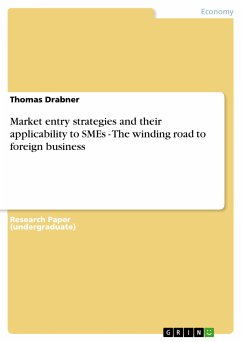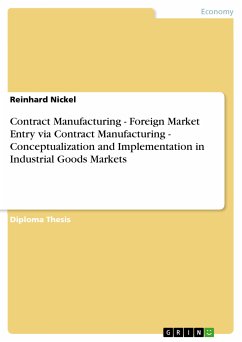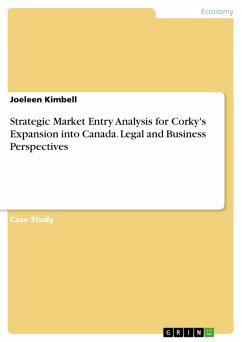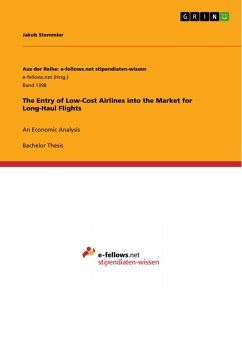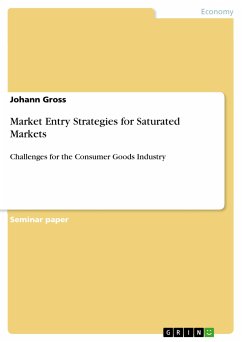Research Paper (undergraduate) from the year 2003 in the subject Business economics - Offline Marketing and Online Marketing, grade: 1,9 (B+), Heidenheim University of Cooperative Education (Economic - International Commerce), course: International Commerce, language: English, abstract: "There will be hunters and hunted, winners and losers. What counts in global competition is the right strategy and success." Heinrich von Pierer1 In business planning the globalization of the world market and the limits of domestic growth raise the question to what extent a foreign commitment should be considered if at all.2 In Germany these considerations are particularly underlined by the strong integration into the world economy. German enterprises obtain a third of their total revenue in foreign business, 25 % of all jobs depend on foreign trade.3 Contrary to expectations, going global is no longer subject only to large multinational companies. Due to saturation tendencies in the domestic market, global competition and the dependency on international key-account customers small and medium-sized enterprises (SMEs) have been faced with the need for international activities. 4 Considering the fact that SMEs account for 97,3 % of all German enterprises, generating almost 45 % of the total revenue per year, the importance of future growth potential becomes evident.5 In general, SMEs are referred to as the "backbone" of German economy and many of them, the so called "hidden champions" have successfully faced the challenge of entering foreign markets.6 Others have been afraid to take this step. For these, the need for adaptation remains and their continuity will depend on the competitiveness in the world market. In general, entering new markets is connected with a multiplicity of chances and risks. SMEs especially, tend to underestimate the importance of profound information and the need for a realistic estimation of own capabilities.7 Accordingly, it becomes necessary to focus on a SME specific approach which considers major evaluation criteria for carefully developing market entry strategies. 1 Dr. Heinrich von Pierer, President and Chief Excecutive Officer of Siemens AG: Quotation cp. 'TheGlobalist' (2000) 2 cp. Hoppen (1999:144) 3 cp. Statistisches Bundesamt (2001:1.6) 4 Due to the IFM in Bonn (2000) SMEs intend to increase their foreign sales from an actual average of 30 % to 50 % in 2020 5 cp. IMF Bonn (2000) 6 cp. Hibbert (2000:1) 7 cp. Brenner (1999:2 et sqq.)
Dieser Download kann aus rechtlichen Gründen nur mit Rechnungsadresse in A, B, BG, CY, CZ, D, DK, EW, E, FIN, F, GR, HR, H, IRL, I, LT, L, LR, M, NL, PL, P, R, S, SLO, SK ausgeliefert werden.

